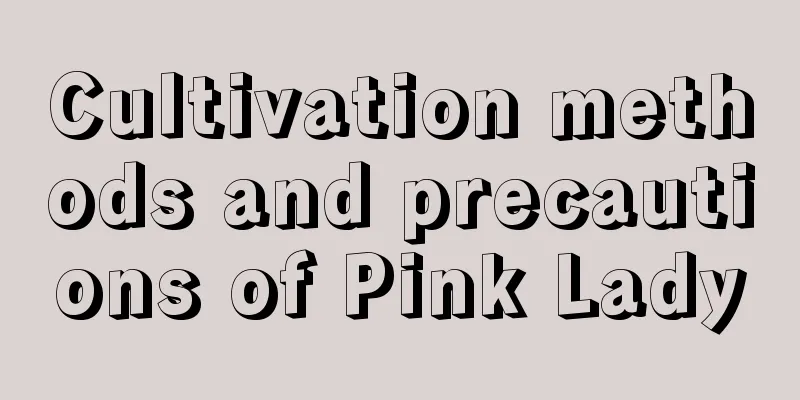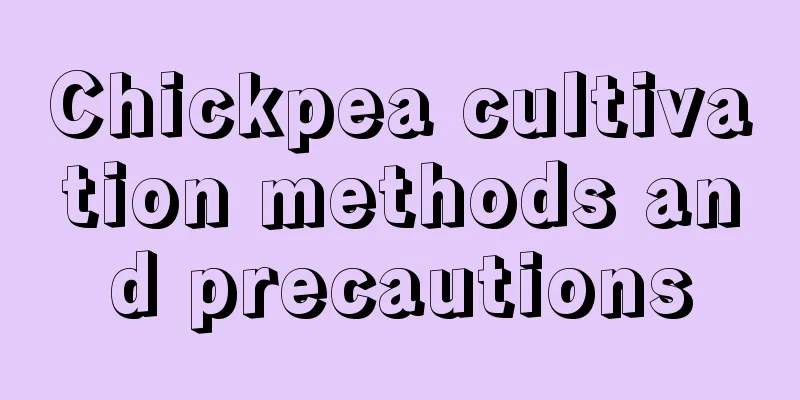Cultivation methods and precautions of Pink Lady

1. Maintenance methods1. Temperature: The temperature in summer is relatively high, so it needs to be controlled. It is best to keep it below 30 degrees. The temperature in winter is relatively low, and the plants are not resistant to low temperatures. If the temperature is below five degrees, they will be frostbitten. It is more reasonable to control the temperature above ten degrees to survive the winter. 2. Watering: It consumes a lot of water during the growing period, so it needs to increase the amount of water appropriately. It is best to water it every other day. It does not need too much water during the non-growing period, and watering it once every two or three days is enough. It needs to be watered once before wintering, so that it can survive the winter smoothly. 3. Fertilization: It has a relatively large demand for nutrients, especially during the growth period. The nutrients in the soil alone are not enough. It needs to be fertilized once a month. It is best to use special fertilizers for succulents or compound fertilizers. These two types of fertilizers have more comprehensive nutrients and are more suitable for Red Pink Lady. 4. Light: It will change color with different lighting time. If the light is less, its color will be green. If the light time is more, its color will turn red. In order to ensure its normal needs, the daily lighting time should not be less than five hours. 2. Breeding techniques1. Reproduction: It can be propagated by cuttings. First, cut healthy branches from the plant, then insert them into a substrate with good drainage and place them in a cool place for maintenance. It will take about twenty days for roots to grow. 2. Pruning: Generally, pruning is not required. It only needs to be pruned appropriately when its growth affects its appearance. 3. Problem Diagnosis1. Yellowing leaves: The yellowing of the leaves is mostly caused by excessive watering, which leads to poor breathing of the roots. The soil needs to be changed. When changing the soil, trim off the branches with rotten roots. 2. Leaf drooping: If the plant has leaf drooping problem, it may be caused by excessive light. You need to put it in a cool place for a few days, and then control the light, mainly using diffuse light to solve this problem. IV. Other issues1. Edibility: It cannot be eaten directly. In addition to being ornamental, it can also purify the air. 2. Can it be cultivated at home? The plant is not tall and has fewer requirements for the maintenance environment, so it is more suitable for indoor cultivation. |
<<: Breeding methods and precautions for black rabbit ears
>>: Cultivation methods and precautions of Sichuan pepper
Recommend
What is the flower language of rose?
1. Its flower language Its flower language is lov...
How and when to plant open-air cucumbers? Which month is the best for planting?
Suitable time for planting cucumbers in the open ...
Truffle cultivation
1. Can it be planted? Truffles cannot be cultivat...
How to grow flowers more vigorously?
Many people like to grow flowers at home, but in ...
How to care for the newly bought tiger skin plant
1. How to deal with the newly bought tiger skin o...
What to do if the leaves of Xiaoyu rot and fall off
The reason why the leaves of the jade tree fall o...
Brother Li never buys nutrient solution when growing lucky bamboo. He just uses these two kinds of water, and the branches can’t be stopped from growing!
Now the plants with good meanings on the market a...
Why is the crabapple flower considered unlucky?
1. The reason why it is considered unlucky (1) Fl...
The difference between heartleaf vine and green radish
1. Differences in leaf shape The leaves of the he...
When does spring orchid bloom?
1. Flowering time Under normal circumstances, spr...
When do sunflowers start to be planted?
Sunflower is a common garden plant suitable for p...
What is the matter with the dry tip of violet
1. Improper application of potassium fertilizer (...
What are the benefits of keeping fuchsia at home
For people to enjoy The biggest function of fuchs...
Advantages and disadvantages of Firebird Rose
Flamingo rose is a miniature rose , a cut rose su...
The difference between Succulent First Love and Hazy Moon
Different origins: The plant of the nebula origin...









